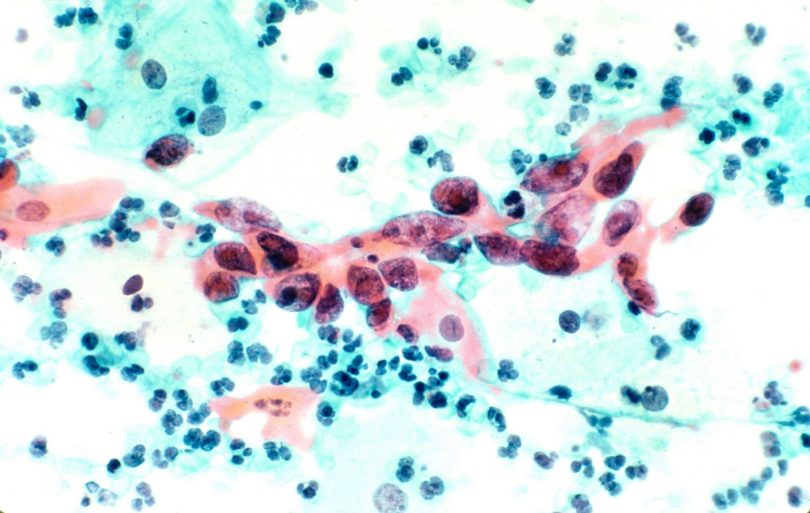While we can’t always prevent a cancer from forming, it is possible to catch some earlier and increase our chance of survival. And January is the perfect time to have a conversation with the women in your life about scheduling a routine test that could save a loved one’s life.
According to Dr. Sharad Ghamande, Chief of the Section of Gynecologic Oncology at Medical College of Georgia, since the late 1960s, Pap smears have been instrumental in reducing the rate of cervical cancer.
“Cervical cancer can happen to any woman,” Ghamande said. “In general, it takes several years for cervical cancer to develop. If precancerous changes are detected through regular Pap smears, these can be easily treated.”
It’s a message echoed by Cynthia Frazier. Frazier, who was diagnosed with stage-3 cervical cancer in February 2014, said she wishes she could turn back the hands of time.
“I was walking around sick, but I didn’t know I was sick.” Frazier said. “You can see what’s going on outside your body just by checking yourself. But the only way to know what’s going on inside your body, is to get yourself checked by your doctor.”
The National Cancer Institute (NCI) estimated just over 12,800 new cases of cervical cancer in 2017. Risk factors for cervical cancer include:
- Human papillomavirus infection. There are many different strains of HPV, including Type 16 and Type 18, which more commonly cause cervical cancer. Ask your physician about tests that can detect these specific types of HPV infection.
- Having many sexual partners.
- Having initial sexual intercourse at a young age.
- Smoking.
- Oral contraceptive use.
- Weakened immune system.
Signs of cervical cancer include unusual vaginal bleeding or discharge, pelvic pain, and post-coital pain or bleeding.
“When my doctor diagnosed me, I told myself I wasn’t going to burst into tears and start crying in front of my girls,” Frazier said. “If I started crying, then they would start crying and we wouldn’t have been able to support each other.”
“Ask your doctor if he or she performs the liquid-based Pap smears, which have a higher success rate in detecting precancerous changes in the cervix,” Ghamande said.
“In addition to a Pap smear, there is a companion test which can detect certain types of the human papillomavirus (HPV,)” Ghamande said.
Another way a woman can protect her body from cervical cancer is to complete a three-dose Human Papillomavirus vaccine over a six-month period. NCI statistics show HPV is the leading cause of cervical cancer.
According to the American Cancer Society, cervical cancer used to be one of the most common causes of cancer death for American women. However, between 1955 and 1992, the death rate declined significantly due to an increase in cervical cancer screenings.
 Augusta University
Augusta University




